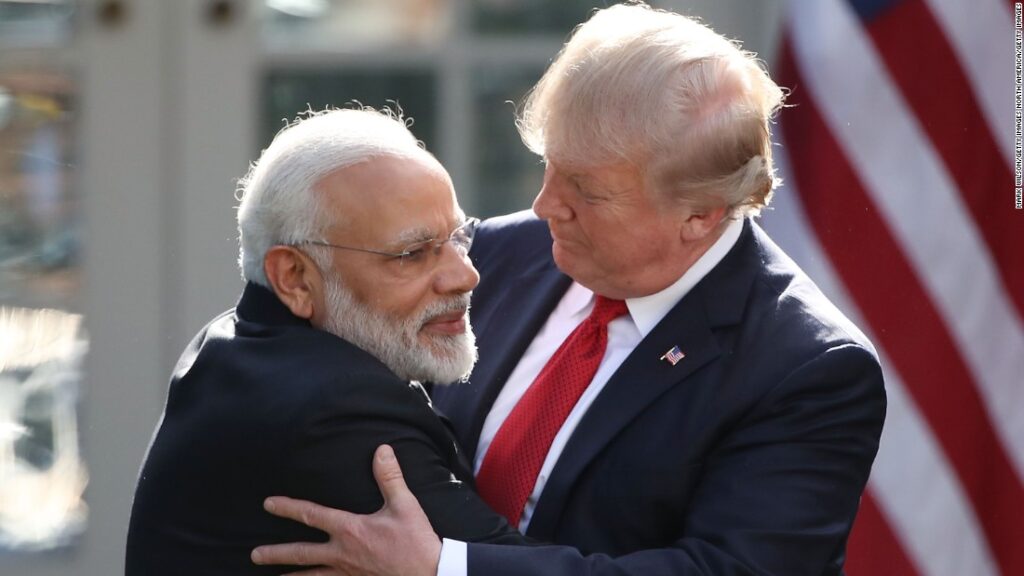
India Prime minister Nagendra Modi and us president Donald Trump day 2 meeting highlights
Narendra Modi and U.S. President Donald Trump Day 2 Meeting: On the second day of their meeting, Indian Prime Minister Narendra Modi and U.S. President Donald Trump focused on strengthening trade and defense ties between their nations. Both leaders expressed a commitment to resolving ongoing trade disputes, with India agreeing to increase imports of U.S. oil, gas, and military equipment. They set a goal to finalize segments of a trade deal by fall 2025, aiming to double bilateral trade to $500 billion by 2030.
On February 14, 2025, Indian Prime Minister Narendra Modi and U.S. President Donald Trump held a significant meeting at the White House in Washington, D.C. The discussions centered on enhancing trade and defense collaborations between the two nations. Photographs from the event capture the leaders engaging in a joint press conference, exchanging handshakes, and sharing warm interactions. These images reflect the cordial atmosphere and the commitment to strengthening bilateral ties.
For a visual overview of the meeting, you can view the following images:
-
Prime Minister Narendra Modi and President Donald Trump during the joint press conference at the White House.
-
The two leaders sharing a handshake, symbolizing the strong partnership between India and the United States.
-
A candid moment between Prime Minister Modi and President Trump, reflecting mutual respect and understanding.
These photographs offer a glimpse into the positive dynamics of the meeting and the shared vision for future cooperation.
In defense, the discussions included plans for India to acquire advanced systems, such as F-35 fighter jets, under a new 10-year defense cooperation framework. This initiative aims to enhance security collaboration in the Indo-Pacific region.
Additionally, both leaders agreed to address illegal immigration and human trafficking, with India committing to repatriate citizens residing illegally in the U.S.
Notably, the discussions did not cover human rights or the treatment of minorities, reflecting a focus on strategic and economic interests.